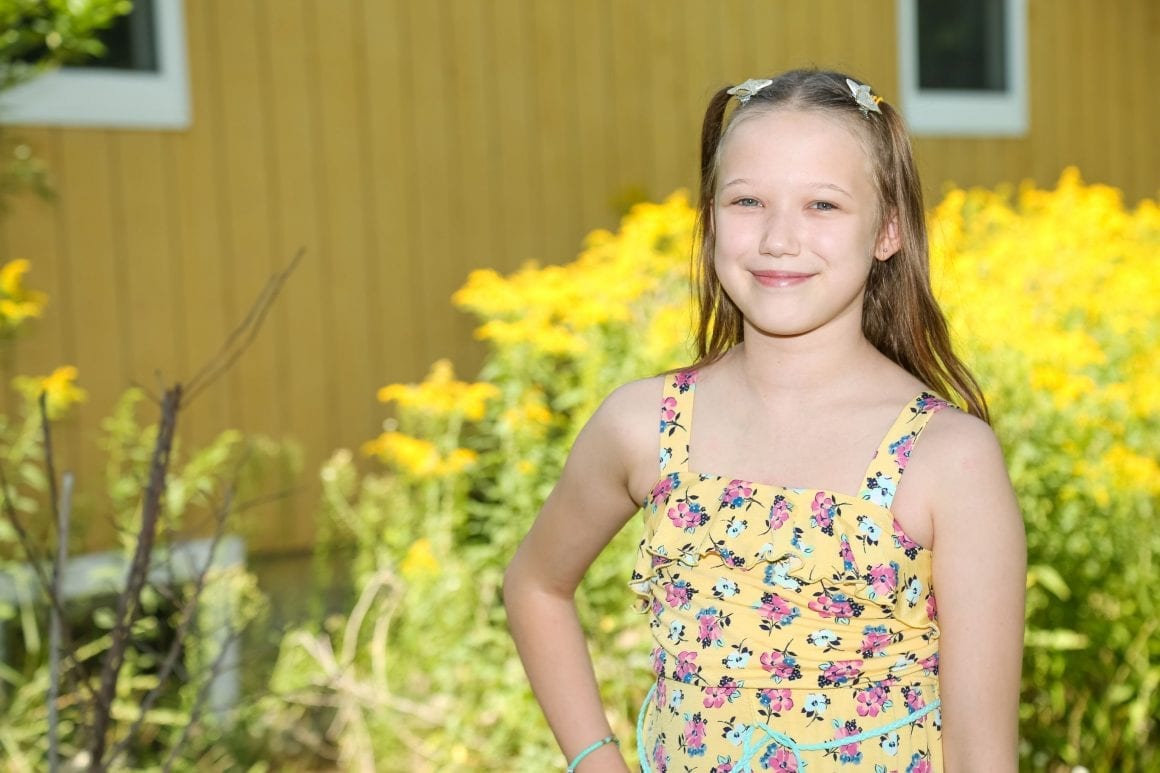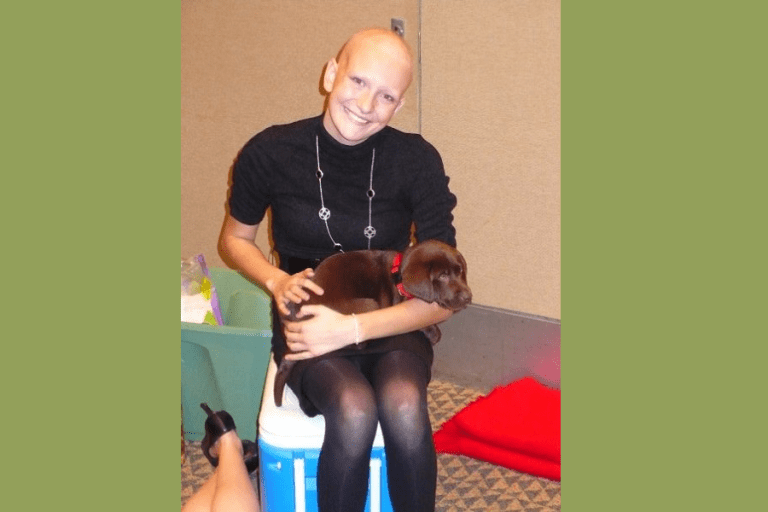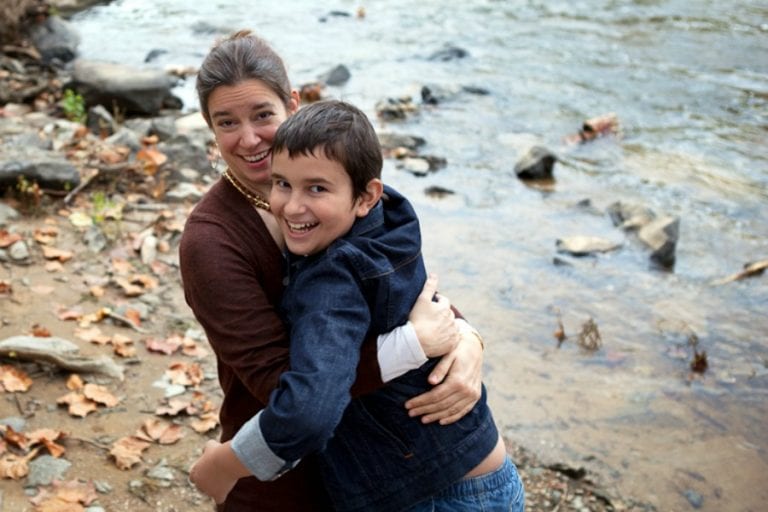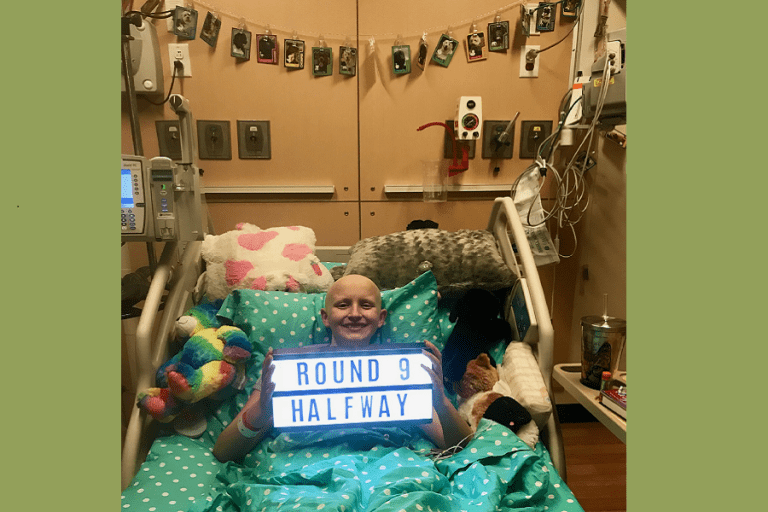In recent weeks, 13-year-old Azaelea’s life has been dictated by a collection of numbers. 49 days – that’s how long Azaelea and her mom, Jessica, had to stay in isolation in her hospital room while she recovers from a stem cell transplant. 100 days – that’s how long Azaelea must stay within 2 miles of the hospital after she’s released from isolation. She’s on day +47 after a stem cell transplant to treat her leukemia. Each day, doctors measure her white blood cell count to gauge how her body is reacting to treatment. Each day, nurses write and re-write the numbers relevant to her treatment on the whiteboard in her hospital room.
While Jessica sees the constantly changing numbers written on the whiteboard in her daughter’s room, what she sees most clearly is Azaelea’s incredible bravery.
“This is a big, hard procedure to go through. I’m so proud of how she’s facing this,” Jessica said. “She gets up and makes the journey and walks into the hospital with her head held high, while knowing it's going to be painful.”
The Beginning
Azaelea first noticed something wasn’t right around Thanksgiving 2019 – she was sick with fevers and fatigue over and over again, and experienced sudden weight loss. Jessica was able to snag a doctor’s appointment for her daughter, despite rising concern over COVID-19. In March 2020, doctors diagnosed Azaelea with chronic myeloid leukemia, a particularly rare cancer not typically found in children.
Because chronic myeloid leukemia has a tendency to keep coming back, even after being battered with multiple rounds of chemotherapy, doctors recommended that Azaelea get a stem cell transplant. After a search for a donor, she received the transplant on February 25, 2021. The hope is that this transplant, which completely wipes out Azaelea’s immune system for a period of time, will also wipe out all the cancer cells once and for all. But the process has been anything but easy. Azaelea is a teenager, old enough to understand what’s happening, what she’s missing out on, and what the difficult road ahead looks like.
The Little Things
Azaelea’s been doing little things every day to remain positive during her difficult treatments. She’s been creating art and playing games. She keeps in touch with her friends as much as she can. When chemotherapy made her start losing her hair, she dyed the tips purple, just for fun.
But the family’s real saving grace, Jessica says, has been Azaelea’s new dog, Mimi.

Azaelea and her dog, Mimi.
“She wanted a pug for eight years leading up to this, and I told her when she’s an adult she can get a pug,” Jessica remembers. “But when we were sitting in the emergency room before she was diagnosed, it was so overwhelming. She was so scared, and going through poke after poke. I told her, ‘You get through this, we’ll get a pug.’”
Mimi has been an emotional support for the whole family, despite Jessica originally saying they’re a “big dog family.” She’s a reminder that sometimes it’s the little things that can make the biggest difference.
What should more people know?
Jessica says adjusting to life in the childhood cancer world was a huge learning curve for her family. After all her family has been through, a few things have stuck out.
Cancer impacts teens, as well as young kids. “A lot of the services in the hospital are for younger kids, especially during the pandemic,” Jessica says. “It’s hard because kids like Azaelea are kind of in-between, they aren’t little kids and they aren’t adults, so they need a different kind of support. It’s harder to connect with a teen, because they’re losing their independence when they should be getting more of it.”
Cancer is a whole-family diagnosis. Azaelea has two sisters and a brother at home – siblings she wasn’t allowed to see in-person for the 49 days she was in isolation for her stem cell transplant. Her family lives two and a half hours north of the hospital, meaning her parents are often separated so one can stay home with her other siblings. All of the kids need the extra support, not only the diagnosed individual.
Please call and text families who are experiencing cancer – and keep calling and texting them. Many families experience a swell of support from their communities shortly after a cancer diagnosis. But Azaelea’s treatment has lasted a year so far, and Jessica says she’s so grateful for the people who, even a year later, have kept reaching out to let her know they’re there for her. “People will tell me they don’t want to bother me, but what I want them to know is, if I can’t answer, I won’t answer. It is never a bother. Seeing those notifications for missed calls or text messages is encouraging in a way that is hard to explain.”
Update: Azaelea passed away suddenly and peacefully in the early morning hours of August 19, 2021. Her mother, Jessica, was by her side.




